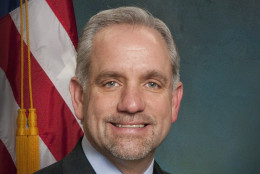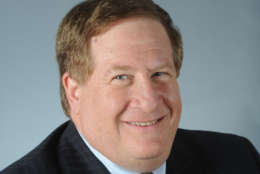Defense Department
-
In just a couple of weeks the Defense Department will start rolling out a new performance rating system called New Beginnings. Don Hale, chairman of the American Federation of Government Employees tells Federal Drive with Tom Temin that none of its quarter million DoD employees are included in the initial test group.
March 15, 2016 -
Pentagon Solutions talks to Charles Tiefer, law professor at the University of Baltimore, and Kelly Sayler, associate fellow at the Center for a New American Security.
March 14, 2016 -
The 2017 Pentagon budget request looks a lot like the 2016 one, maybe a little more so. The well-known and costly platforms are all in there, from the F-35 to modernizing the nuclear arsenal. Law professor Charles Tiefer shares his thoughts on Federal Drive with Tom Temin about some of the big drivers of waste.
March 08, 2016 -
Marie Mak, director of acquisition and sourcing issues at the Government Accountability Office, appears on Pentagon Solutions.
March 07, 2016 -
Local venture capitalist Jonathan Aberman has been working with The 2030 Group, an organization made up of Washington Metropolitan area business leaders, to quantify the level of corporate and startup innovation here in the D.C. area. He shares the details on Federal Drive with Tom Temin.
March 07, 2016 -
The Air Force and FBI are adapting their approaches to enterprise IT to become more agile.
March 04, 2016 -
The Pentagon itself does little to predict future spending on its biggest ticket items, according to a landmark study by the Government Accountability Office. Tim DiNapoli, GAO's director of acquisition and sourcing management issues, gives Federal Drive with Tom Temin all the details.
March 01, 2016 -
Reports of counterfeit parts making it into sensitive Defense Department systems have steadily declined since agencies were required to make those reports in 2013. Marie Mak, director of acquisition and sourcing issues at the Government Accountability Office, tells Federal Drive with Tom Temin why.
February 29, 2016 -
The Office of Federal Procurement Policy named 10 new category managers Feb. 25 to lead the commodity buying areas that represent more than $270 billion a year.
February 25, 2016 -
A new rule stemming from the 2015 Defense authorization act would disallow reimbursing contractors for costs when they're called into Congress for investigations. This is not just for DoD agencies. Alan Chvotkin, executive vice president of the Professional Services Council, joined Federal Drive with Tom Temin with more on this rule and its likely impact.
February 25, 2016 -
Why would anyone want to be a federal CIO? Jeff Neal breaks down the pros and cons of the position.
February 24, 2016 -
Over the next three years, the military will deploy a series of sophisticated gateways to better protect its vast network from external attack, according to Army Col. Scott Jackson, who oversees construction of the Joint Informational Environment or JIE.
February 19, 2016 -
Like the line in the famous Joni Mitchell song, Stan Soloway, former Pentagon procurement chief, has seen life from both sides now, or at least federal acquisition. Soloway recently stepped down after 15 years as CEO of the Professional Services Council, a trade group representing hundreds of defense contractors. He joined Federal Drive with Tom Temin to discuss why the Defense Department and everyone connected to it is wondering what happens next.
February 17, 2016 -
President Barack Obama's Fiscal Year 2017 budget proposal gives the Defense Department $524 billion, plus another $59 billion for overseas contingency operations.
February 15, 2016 -
The Pentagon didn't get everything it wanted for 2017 in the President's budget proposal. But it got a lot: $524 billion in the base, plus another $59 billion for overseas contingency operations. It's a mix of cost-cutting reforms and investments in what the brass sees as five strategic challenges. Bryan Clark, senior fellow at the Center for Strategic and Budgetary Assessments, joined Federal Drive with Tom Temin to offer his insight.
February 11, 2016












